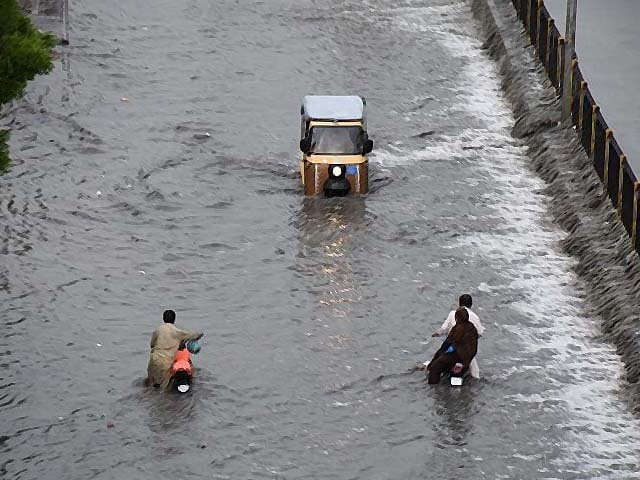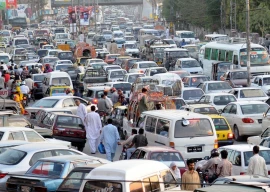
With climate change-induced natural calamities regularly causing immense structural and economic damage, the right preparation in the form of policy and planning and learning from the experience of others can help mitigate this loss.
This was stated by experts on climate change and environment during an online dialogue on ‘Flood induced migrations in South Asia’. The dialogue had been organised by the Sustainable Development Policy Institute (SDPI).
Sanjay Vashist, the director of Climate Action Network (CAN), explained the various dynamics of climate change-induced displacement in South Asia.
Suggesting that climate change-induced natural calamities will not stop abruptly, he said that governments in the region need to pay attention to improving their state of preparedness in the face of natural disasters.
He added that the recent rise in sea levels was the result of intensified urban flooding and thus, measures must be taken to protect vulnerable communities.
Pakistan asked to turn floods into opportunities
Countries like Pakistan, India, Bangladesh and other countries in the region have faced huge losses, both in terms of human lives and properties during recent years due to floods which impacted urban and rural populations differently.
The phenomenon of flash floods, he said, has also worsened.
SDPI Executive Director Dr Abid Qaiyum Suleri emphasised the need for empowering and strengthening local governance structures to deal with natural calamities effectively.
In addition to the Provincial Disaster Management Authorities (PDMAs), the district disaster management authorities (DDMAs) can also play a vital role in stopping such natural events from turning into human disasters.
“Citizens must not suffer due to lack of coordination and collaboration between different administrative authorities,” Dr Suleri said while referring to the recent urban flooding in Karachi. Instead of political point-scoring, he said that the administrative authorities need to enhance cooperation, besides introducing the right policies and planning, to protect the lives and properties of citizens.
Afia Salam, a freelance journalist, pointed to the rapidly growing population as a factor which has led to encroachment on natural watercourses, choking the drainage system.
This, she said, was mainly a governance problem which is resulting in human disasters and despite facing adverse climate change impacts since the last several years, very little focus on preparedness and adaptation has been made.
She further said that the displacement of the population due to floods or any other natural calamity entails several social, economical and human impacts which need to be considered by policymakers.
Published in The Express Tribune, September 8th, 2020.









1726134115-0/BeFunk_-(41)1726134115-0-270x192.webp)








COMMENTS
Comments are moderated and generally will be posted if they are on-topic and not abusive.
For more information, please see our Comments FAQ